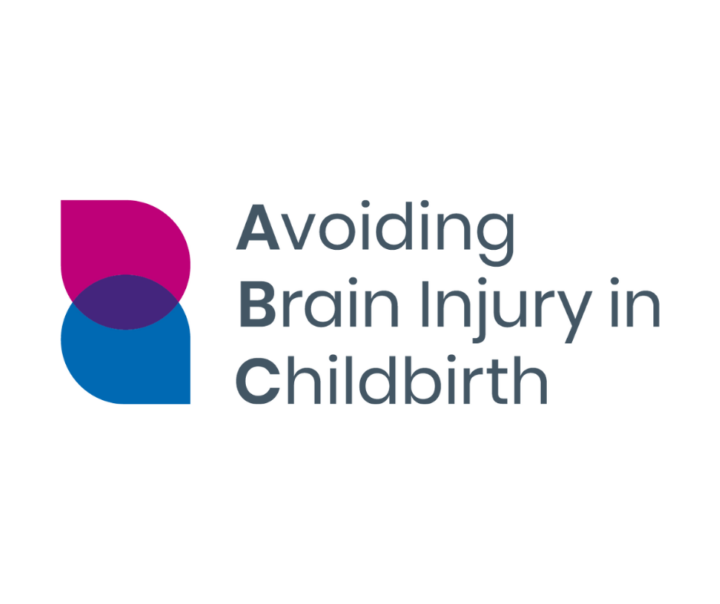Avoiding Brain Injury in Childbirth (ABC) programme pilot concludes successfully


A pilot of the Avoiding Brain Injury in Childbirth (ABC) programme, delivered by the Royal College of Obstetricians and Gynaecologists, Royal College of Midwives and The Healthcare Improvement Studies (THIS) Institute at the University of Cambridge, has successfully concluded.
Avoidable brain injury acquired during labour (intrapartum care) can have devastating consequences for babies and their families, along with significant lifetime costs for health and care services, including clinical negligence costs.
Developed and piloted over three phases spanning 2021-2025, the ABC programme is designed to reduce the risks associated with two key contributors to avoidable brain injury: managing impacted fetal head at caesarean birth, and recognising and responding to the baby who may be deteriorating during labour.
Organised into two modules to address these two significant contributors, ABC offers clear clinical practice standards with supporting resources, including high quality training. A cascade model, where clinical champions from maternity units are trained to train their local teams, was successfully used to spread good practice. The programme was co-designed with both service users and maternity professionals to support best care, including communicating effectively and respectfully with the person in labour and their birth partner.
Involving women, birthing people and birth partners has been a defining feature of the ABC programme. For the pilot, a specially established Maternity Patient and Public Involvement panel participated and fed into programme tools, resources and training. Their contributions were invaluable in ensuring the priorities of maternity service users remain paramount.
For the ABC module on impacted fetal head at caesarean birth six maternity units participated in train-the-trainer events. Participants learnt about the evidence base for the different techniques and practised these using specially designed manikins, with a strong focus on team working and communicating with women and birth partners. Clinical champions from these units then trained their colleagues locally, meaning that dozens of staff were trained in under three months. An independent evaluation by RAND Europe reported that both the train-the-trainer and the local events were very well received.
The ABC module on recognising and responding to suspected fetal deterioration operationalises current national guidance to integrate a range of intrapartum risk factors into a single standardised approach so that decision-making and action are supported more effectively, including a new tool and a strong emphasis on teamwork and communication with those in labour. Six maternity units participated in train-the-trainer events over two cycles. The clinical champions trained at these events then implemented the training locally within three months, again reaching a large number of staff quickly and effectively. The independent evaluation of the pilots informed the optimisation of the tools and training, as well as identifying improvements after optimisation, and offered insights into how to implement the new approach where current practices are often variable.
The pilot has also developed a quality assurance framework, a data strategy, a strategy for digitising the ABC tool, a delivery and implementation strategy, and principles to guide a future evaluation of the national programme.
The ABC programme supports multidisciplinary maternity teams to deliver safer, more personalised care. Hundreds of maternity staff, including obstetricians, midwives and anaesthesiologists, have been involved in developing and testing this quality improvement programme. We have heard what a difference it makes, supporting teams to work effectively together in time-sensitive and high-pressure situations. The RCOG is extremely proud to have been part of this fantastic collaboration.
Ranee Thakar, President of the Royal College of Obstetricians and Gynaecologists
Every midwife, maternity support worker, obstetrician, anaesthetist and sonographer wants to provide good, safe care – and the best way to do that is by working and training together. The ABC programme has brought together all those involved in maternity care, offering practical solutions to some of the most acute clinical challenges. Crucially, the ABC programme tools and training have been developed based on the voices of women, families and maternity staff. This has been the key to the success of the pilot programme. Equally the will and drive of midwives and the wider multidisciplinary team to improve safety and outcomes for women and their families has been evident across the course of the training at the pilot sites. The ABC programme has the potential to reduce the devastating impact of brain injuries during childbirth and the RCM is proud to have been part of this innovative programme and we hope to see this adopted and implemented across maternity services.
Gill Walton, Chief Executive, Royal College of Midwives
The ABC programme design is based on the principle that evidence-based, co-designed patient-focused standardisation of clinical practice can reduce unwarranted variation and improve care and outcomes. Crucially, this needs to be supported by comprehensive improvement resources, including training, tools and assets to enable good clinical practice and teamwork and respectful and inclusion communication and decision-making with women and birth partners. The pilot has shown that it’s possible to train people effectively and efficiently. A national commitment to implement the programme at scale will be important in ensuring that the benefits are seen.
Professor Mary Dixon-Woods, Director of The Healthcare Improvement Studies Institute
The insights and pointers provided during our visit from the ABC team were invaluable. The guidance will help us improve our practices and strengthen our efforts in preventing brain injuries in childbirth. It was a privilege to learn from the team and their passion for this cause truly inspired us.
Shaye Morley, Midwifery Practice Educator at Liverpool Women’s Hospital and participant in the ABC3 training programme
For any queries about the ABC programme, email: england.perinataldeterioration@nhs.net.